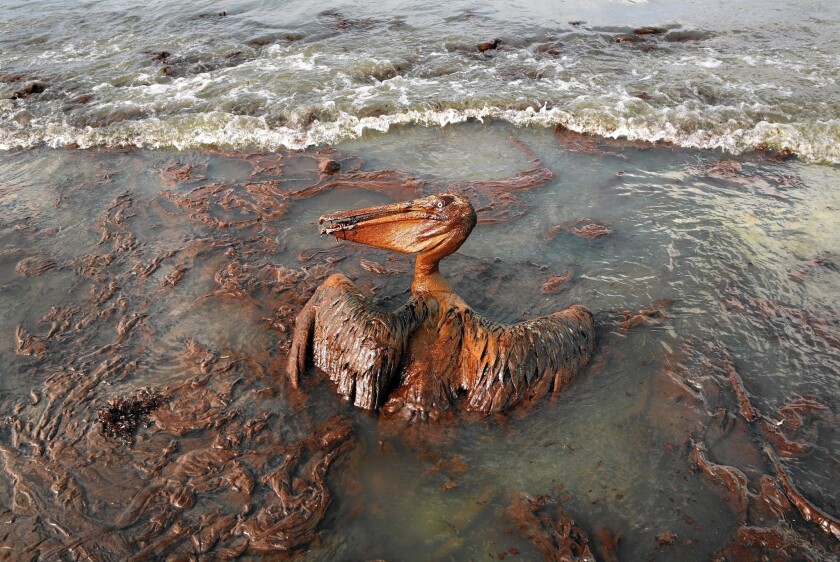As the oil industry has grown in wealth and power, the various companies have begun to have a larger share in American politics as well. Like it or not, these big companies are able to carry out a variety of different strategies that allow them to influence American regulations and laws in their favor. However, these proposed laws may lack the support of the American people and may face a backlash among citizens. So, how have the previous two administrations handled the U.S.’s Big Oil, and how have the people felt about it?
Just a short 2 years into his presidency, Barak Obama was faced with arguably the “worst devastating assault on American soil since 9/11” with the BP oil spill in the Gulf of Mexico. It is widely believed that the Obama Administration had warnings leading up to the spill, yet the president did nothing to act. He overlooked the company’s corruption and lack of environmental safeguards in the simple pursuit of producing oil. Faced with growing concern all across the country, how did Obama’s administration handle this crisis?

It took five years of research and studies, but the Obama Administration did respond, and in a big way. After years of criticism for not acting and playing favors to the oil industry, the President announced new legislation that would help to protect the environment and prevent any sort of similar disaster like the BP oil spill from ever happening again. Five years after the catastrophe that killed 11 people and killed vast areas of wildlife, Big Oil would face harsher regulations. Although this was the third drilling-equipment regulation that the administration had passed (one in 2010 about well casings and another in 2012 about the cementing of walls), this was the largest to date. The rule tightened safety requirements on blowout preventers and other back-up equipment on rigs, some of which had, despite being called “fail-safe”, failed in the 2010 disaster.

The new legislation was popular among environmental groups and others who felt that the oil companies needed to be increasingly regulated after seeing the spill either first-hand or in nightmarish pictures. It was a step in the right direction towards ensuring safe and clean energy for the American people. Accidents and injuries on oil rigs continued to rise after the BP spill, although they were overshadowed by the much larger, more pressing event. Congress was quick to address this issue, nearly doubling the number of safety inspectors in the Gulf of Mexico alone. However, the regulations faced severe backlash from the oil industry. Although companies talked about their goal of achieving “zero spills“, the Obama administration continued to find that “A culture of minimal regulatory compliance continues to exist in the Gulf of Mexico and risk reduction continues to prove elusive”. Led by oil giant ExxonMobil, many companies opposed the legislation and failed to comply.

The Obama Administration was stuck in a tough place. The oil industry, which had increased production under Obama’s watch and, as he claimed, had risen to become the world’s number one producer of oil due to his time in office, held immense power within the country and its economy. Although legislation was passed the horrors of the oil spill had died down, the incoming Trump administration would be left with many questions still to answer.
Oil is something that is so prevalent in our society and holds such a big spot in the economy that it is sometimes hard for leaders to know what to do. Oil spills are truly tragic because they seriously hurt the environment and aquatic life. In the future, big oil definitely needs to be regulated more closely and I think Obama did a good job in that regard. It is now up to the Trump administration and future administrations to make sure no major oil spills happen again.